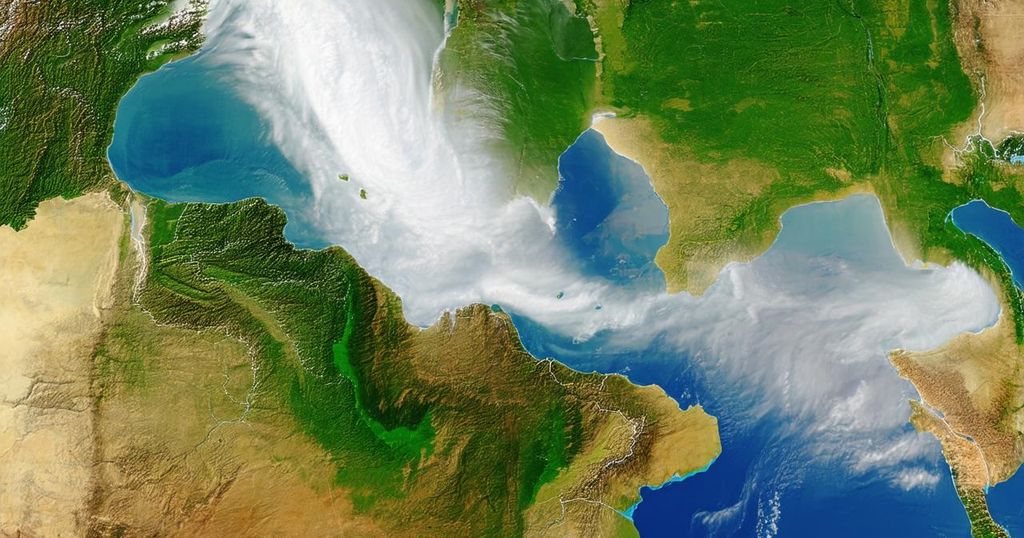The Central African Republic is trapped in a cycle of underdevelopment, political instability, and climate change vulnerability, as highlighted in the CCDR. With one of the lowest GDP per capita figures globally and overwhelming poverty, CAR faces significant challenges. The interplay of economic stagnation, societal fragility, and environmental susceptibility hinders effective resilience strategies. A multifaceted approach is imperative to break this cycle and foster a path toward sustainable development.
The Central African Republic (CAR) is ensnared in a detrimental cycle characterized by entrenched underdevelopment, political instability, and increasing vulnerability to climate change. This situation is meticulously detailed in the Central African Republic Climate and Development Report (CCDR), which illustrates the significant hurdles the nation must overcome. Economically, CAR suffers from severe underdevelopment, as evidenced by its exceptionally low GDP per capita, recorded at merely $495 in 2019. The country ranks among the lowest on the Human Development Index (HDI), indicating significant deficiencies in health, education, and overall living standards. Children born in CAR today face a bleak future, estimated to achieve only 29% of their productive potential given full access to education and health services. Alarmingly, around 70% of the population lives below the poverty line, and between 2018 and 2021, approximately 90% of households experienced substantial shocks, primarily due to armed conflict (54%) and climate-related events (27%). Politically, the fragility of CAR is exacerbated by a tumultuous history of violence and conflict, which has severely weakened governance frameworks and disrupted societal cohesion. The country has endured recurring instability since gaining independence in 1960, profoundly affecting its governance capabilities and inciting tensions that frequently escalate into violence. Such instability has led to the displacement of significant segments of the population and the fracturing of communities, while urban areas have not developed resiliently enough to provide refugees with opportunities and safe living conditions. Environmental factors compound these issues, as over 80% of the population depends on agriculture and forestry—sectors that are highly sensitive to climate change. The CCDR underscores that shifting rainfall patterns and increased extreme weather events pose a grave threat to food and water security, as well as to livelihoods. Reports indicate that erratic weather disrupts agricultural production, thereby exacerbating food insecurity and affecting the national economy. Moreover, CAR’s extensive river systems and rich forest resources are increasingly at risk from desertification and other climate phenomena. The challenges faced by CAR are deeply interconnected, forming a complex web that stifles economic, social, and environmental progress. The mutual reinforcement of underdevelopment, political instability, and climate susceptibility severely limits CAR’s ability to adopt effective climate resilience and adaptation strategies. Governance weaknesses further impede the implementation of vital policies and hinder necessary international collaboration. To break this vicious cycle, it is critical for CAR to pursue a comprehensive strategy that tackles both the root causes and symptoms of its challenges through targeted investments, institutional enhancements, and innovative policy reforms. Without an integrated approach that accounts for the sectoral and spatial dimensions of its challenges, CAR is at a risk of being further entrenched in this cycle, ultimately jeopardizing the well-being of its citizens and hindering future developmental prospects.
The Central African Republic has historically struggled with issues of underdevelopment, state fragility, and climate change vulnerability. With one of the lowest GDP per capita rates in the world, coupled with devastating poverty levels, the nation grapples with a significantly impaired Human Development Index. Political instability has persisted for decades, leading to weakened governance and disrupted social structures, further exacerbating economic challenges. Additionally, the reliance on agriculture and forestry makes the population particularly susceptible to climate-related shocks, underscoring the need for strategic planning and international cooperation to address these intertwining challenges effectively.
In summary, the Central African Republic faces a significant challenge characterized by the intertwining issues of underdevelopment, political instability, and climate vulnerability. The CCDR indicates that without targeted actions and comprehensive strategies to address the root causes of these challenges, CAR risks further entrenchment in its current predicament. Prioritizing strategic investments, strengthening institutions, and fostering international collaboration are essential for breaking this cycle and paving the way for sustainable development and resilience against climate change.
Original Source: reliefweb.int






